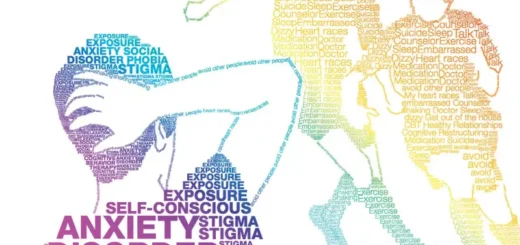Local Support Groups: Strengthening Resilience in Social Phobia
In New Zealand, local support groups play a pivotal role in fostering resilience among individuals grappling with social phobia. These community-driven initiatives provide a safe space for sharing experiences and strategies, allowing participants to connect with others who understand their challenges. As detailed in the case studies featured on Social Phobia NZ, these groups not only reduce feelings of isolation but also empower members to confront their fears through collective support.
Social phobia can severely impact daily functioning, but the camaraderie found in local support networks helps individuals regain confidence and develop coping mechanisms. By participating in these groups, members discover that they are not alone in their struggles, fostering a sense of belonging that is crucial for healing and growth. Through shared stories and encouragement, these communities are transforming the narrative around social phobia in New Zealand, nurturing resilience and hope.
The Importance of Local Support Groups in New Zealand
Local support groups play a crucial role in addressing social phobia, a condition that can significantly hinder individuals’ ability to engage socially and lead fulfilling lives. In New Zealand, communities are increasingly recognizing the value of such groups. They offer a safe space for individuals to share their experiences, learn from one another, and develop coping strategies. These gatherings often provide a sense of belonging that can be particularly beneficial for those who feel isolated due to their social anxiety.
Support groups create an environment where members can discuss their struggles without fear of judgment. This acceptance fosters resilience, as individuals learn that they are not alone in their experiences with social phobia. The emphasis on empathy and understanding helps to normalize feelings associated with anxiety, enabling participants to approach their challenges with renewed strength.
How Support Groups Facilitate Open Communication
One of the most significant benefits of support groups is the facilitation of open communication. Members are encouraged to share their stories, which can be therapeutic and liberating. In New Zealand, groups often use structured discussions or guided activities to help members articulate their feelings and experiences regarding social phobia_1. This practice not only helps them articulate their emotions but also reinforces the idea that their struggles are valid.
For instance, a support group in Auckland might focus on specific scenarios that trigger social anxiety. Members can role-play these situations, allowing them to practice responses in a safe environment. This approach not only builds confidence but also equips individuals with practical techniques that they can use in real-life situations. Furthermore, these shared experiences can lead to the development of friendships, creating additional support networks outside the group.
Building Trust and Empathy Among Members
Trust and empathy are foundational elements in any effective support group. In New Zealand, many local groups emphasize creating a welcoming atmosphere where individuals feel comfortable sharing their struggles with social phobia. Leaders often establish ground rules that promote confidentiality and respect, ensuring that all voices are heard and valued.
For example, during meetings, members might participate in icebreaker activities that encourage them to share light-hearted personal anecdotes. This process helps to break down barriers and fosters a sense of camaraderie. As members begin to share their stories, they often discover commonalities that deepen their connections, reinforcing the idea that they are not alone in their experiences with social anxiety. Through this process, individuals can cultivate empathy, which is essential for supporting one another through their journeys toward resilience.
Educational Resources and Workshops
Many support groups in New Zealand go beyond sharing experiences; they also provide educational resources and workshops aimed at understanding and managing social phobia. These sessions often cover various coping strategies, mindfulness techniques, and cognitive-behavioral approaches that can empower individuals to face their fears.
Workshops might include guest speakers, such as mental health professionals, who can provide valuable insights into the nature of social phobia_1. By understanding the psychological mechanisms behind their anxiety, individuals can develop more effective coping strategies. Additionally, these educational components help demystify social phobia, reducing stigma and fostering a more informed community. For more resources and information, individuals can visit socialphobia.org.nz, which offers guidance on managing social anxiety effectively.
The Role of Technology in Support Groups
In recent years, technology has become an integral part of support groups, especially in light of the challenges posed by the COVID-19 pandemic. Many groups in New Zealand have adapted to virtual formats, allowing individuals with social phobia to participate from the comfort of their homes. This accessibility can be particularly beneficial for those who may struggle with the idea of attending in-person meetings.
Virtual meetings also allow for greater flexibility in scheduling, accommodating individuals who may have varying commitments or feelings of anxiety. Online platforms can facilitate discussions, share resources, and provide a space for members to connect and support one another. Additionally, these digital gatherings can serve as a bridge for those who may feel hesitant to engage in face-to-face interactions, gradually building their confidence in a more controlled environment.
Success Stories: Overcoming Social Phobia Through Community Support
Sharing success stories can be a powerful motivator for individuals struggling with social phobia. In New Zealand, many support groups feature testimonials from members who have made significant progress thanks to the encouragement and camaraderie of their peers. These stories often highlight the transformative power of community support in fostering resilience and personal growth.
For instance, a member from Wellington may recount their journey from severe anxiety to feeling comfortable participating in social gatherings. Such narratives inspire others facing similar challenges, reminding them that change is possible with persistence and support. These success stories not only validate the struggles of individuals but also reinforce the idea that collective support can lead to meaningful change in dealing with social phobia_1.
Encouraging Community Involvement and Outreach
Finally, local support groups in New Zealand are increasingly engaging in community outreach initiatives to raise awareness about social phobia and reduce stigma. By organizing events, workshops, or awareness campaigns, these groups contribute to a broader understanding of mental health issues within the community.
For example, a community event in Christchurch might focus on educating the public about social phobia and its impacts. By distributing informational materials and sharing personal stories, support groups can foster empathy and understanding among those who may not experience social anxiety themselves. This outreach not only benefits individuals directly affected by social phobia but also helps to create a more supportive environment for everyone.
FAQs
What is social phobia and how does it affect individuals?
Social phobia, also known as social anxiety disorder, is characterized by an intense fear of social situations where individuals might be judged, embarrassed, or scrutinized. This condition can lead to significant distress and avoidance of social interactions, negatively impacting personal relationships and professional opportunities.
How do local support groups in New Zealand help those with social phobia?
Local support groups provide a safe and understanding environment where individuals can share their experiences and challenges related to social phobia. These groups foster resilience by promoting open communication, offering coping strategies, and building a sense of belonging among members who understand each other’s struggles.
What activities are typically included in support group meetings?
Support group meetings often include discussions, skill-building exercises, role-playing scenarios, and mindfulness practices. These activities aim to help participants develop social skills, manage anxiety, and gradually face their fears in a supportive setting.
Can support groups replace professional therapy for social phobia?
While support groups can be beneficial, they are not a replacement for professional therapy. Many individuals find that combining support group participation with individual therapy provides the most comprehensive approach to managing social phobia. Professional therapists can offer tailored guidance and treatment options that address specific needs.
How can someone find a support group for social phobia in New Zealand?
Individuals seeking support groups can start by consulting mental health organizations, community centers, or online directories that list local resources. Additionally, social media platforms and mental health forums may provide information about existing groups or facilitate the creation of new ones.
What are the benefits of joining a support group for those with social phobia?
Joining a support group can lead to numerous benefits, including reduced feelings of isolation, increased self-confidence, improved coping mechanisms, and the opportunity to learn from others’ experiences. Participants often find that sharing their journey fosters a sense of community and belonging that is vital for overcoming social phobia.
Are there any age restrictions for joining support groups focused on social phobia?
Most support groups are open to individuals of various ages; however, some may have specific age restrictions to ensure that participants feel comfortable. It’s best to check with the group organizers regarding age requirements and whether there are separate groups for different age demographics.
References
- New Zealand Social Phobia Support Network – This organization provides resources and support for individuals dealing with social phobia, fostering community connections and resilience through local support groups.
- Mental Health Foundation of New Zealand – Support Groups – This resource outlines various support groups across New Zealand that help individuals cope with mental health challenges, including social anxiety and phobias.
- Te Papa – Mental Health Support Groups in New Zealand – An informative article discussing the impact of local support groups on mental health and resilience in communities across the country.
- Ministry of Health – Mental Health Support Groups – This government publication provides insights on the importance of community support for mental health and lists resources available in New Zealand.
- NZ Herald – Support Groups Help People with Mental Health Issues – A news article highlighting the role of support groups in New Zealand in enhancing mental health and building resilience among individuals facing challenges like social phobia.




